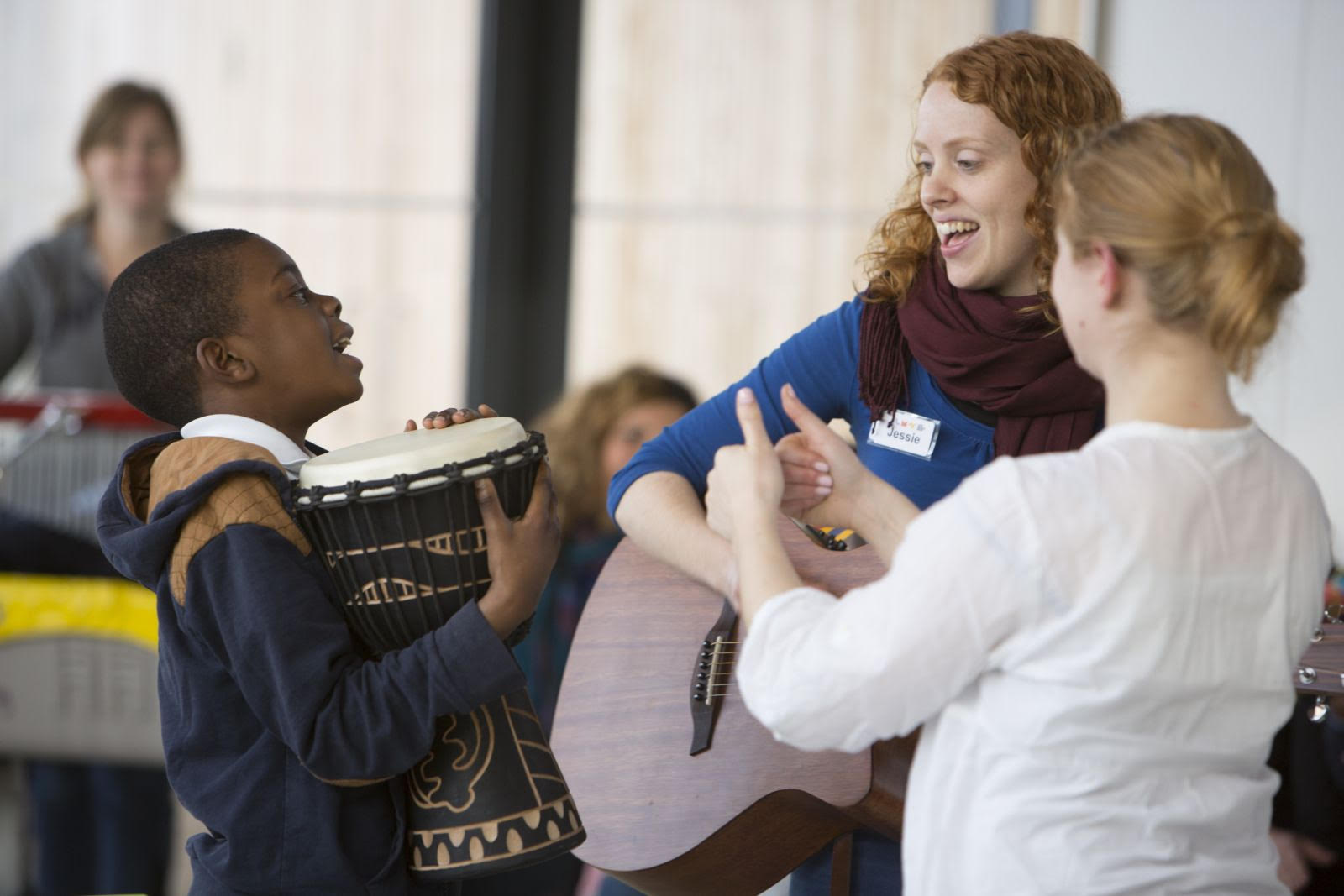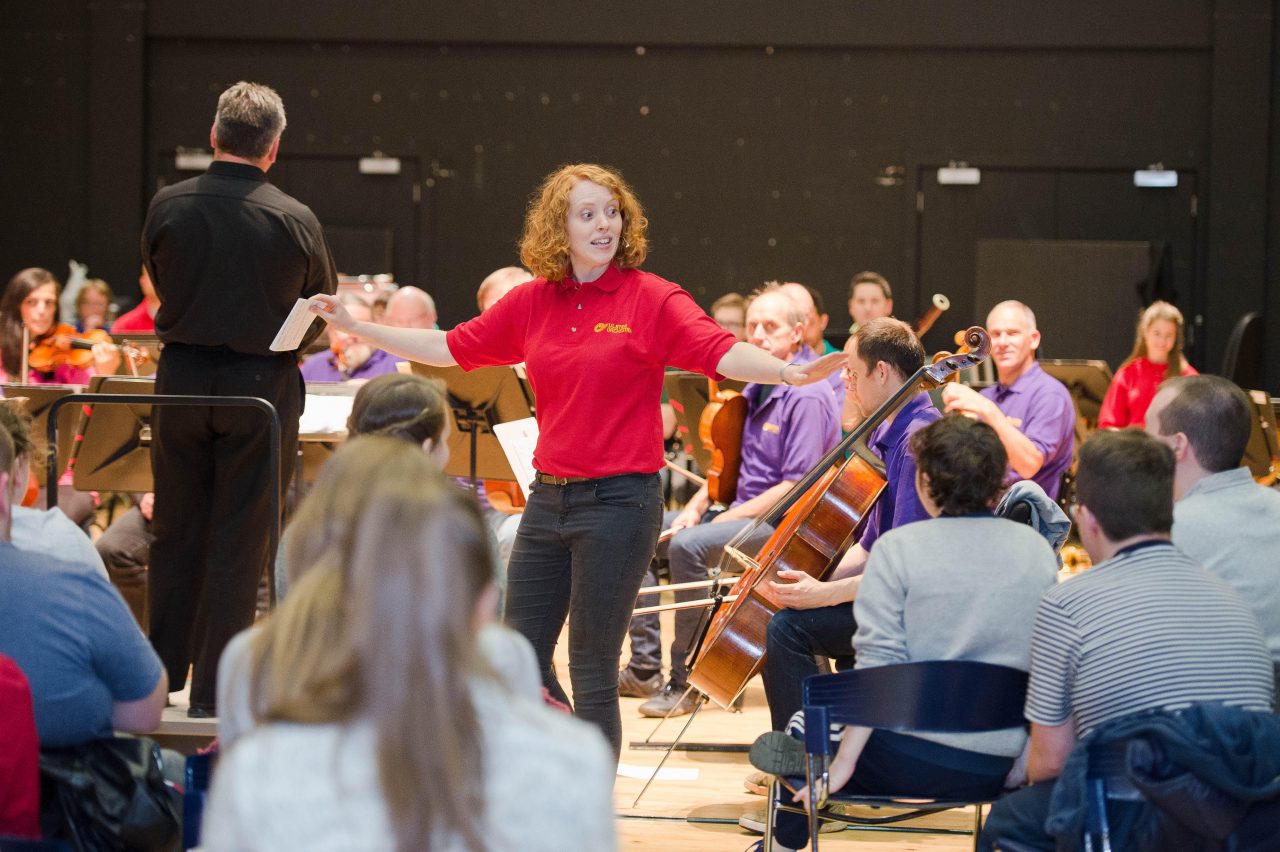The Jacquins make performing in care homes, mainstream and special needs schools, hospitals, museums, and just about anywhere else that will have them, a central part of what they do. They were in the unusually privileged position of spending six years as Live Music Now artists and also developed strong links with the charity Arts 4 Dementia with whom they have curated a number of residencies and projects over the years. Between them, they have a wealth of educational and workshopping experience, with projects and teaching positions at the Junior Royal College of Music, Trinity Laban Conservatoire of a Music and Dance and Aldeburgh Young Musicians to name but a few.
If you would like to discuss bringing the trio to a place that is important to you, drop us a line at: jacquintrio@gmail.com

Trio clarinetist, Jessie Grimes, has led workshops for the Royal Philharmonic Orchestra, Ulster Orchestra, Sinfonia Viva, City of London Sinfonia and has even presented concerts live on BBC television.
We took a few minutes to chat with her about the type of projects that make her most excited.
Q - Tell us a bit about the different places that you have made music outside of the traditional concert scenario, and why they are important.
I think throughout my life I've probably made more music outside traditional concert scenarios than the other way around! I grew up learning traditional Irish music by ear in pubs from old master musicians, I spent a lot of my teenage years busking instead of babysitting for cash, and more than anything we were always playing music at home. Playing classical music in formal venues is of course exciting, and indeed a privilege in places such as Carnegie Hall or the Albert Hall. Sitting on those stages always makes me grateful for the hours of laborious practice I put in over the years! Formal concert scenarios are a lovely way to make music and connect with an audience with an atmosphere of formality and reverence, but in many settings there are too many barriers, both literally and metaphorically. Sometimes getting away from the traditional stage and audience in chairs in a row creates an opportunity for more of an intense and direct connection with an audience. These days I frequently make music in a big variety of settings, from mum and baby toddler groups, to special educational needs school sensory rooms, to hospital wards, to hipster warehouses in East London!
Q - How does this type of playing impact the ensemble - does it change the way the trio interacts on the concert platform?
Whether playing alone or with an ensemble, removing the barrier of a stage and chairs in rows creates a new atmosphere. It allows for more openness and generosity in the energy exchanged between the audience and the ensemble. As a musician you can feel that change of energy and how it effects your colleagues and can really buzz off the increased amount of communication in the room.
Q - Why is it important to bring music into these environments?
It's important to bring music to as many different spaces as possible. Unlike a tree falling in the woods, the question is does a musician playing alone make a connection? As long as you are with other people that connection can be made. For many people living in different challenging circumstances, be it disability, mental or physical, isolation or poverty, getting to a posh place like the Wigmore Hall has so many invisible barriers - the cost of the ticket, the challenge of travel, the intimidating nature of the environment. I believe as a musician we are responsible for trying to break down those barriers, by creating a less intimidating environment in formal spaces and more importantly breaking out of that comfort zone and bring our music elsewhere. Music is for everyone, not just a privileged few!
Q - What has it taught you?
Making music outside of formal settings has taught me so many things! It has taught me how to connect with people in new ways, by sharing a smile or witnessing the delight of someone feeling the vibrations made by my instrument. It has taught me not to take the music for granted as it has such huge power. It's easy to begin to take our jobs for granted when we make music every day, but having a moment of really connecting with somebody and hearing their story and how music has helped or moved them really makes me realise the privilege and responsibility we have as musicians.

"Over about two months we visited a care home for the elderly in West London every Friday morning and gave a short interactive performance. It was the highlight of our week. Music making at its most immediate and impactful - an absolute privilege.” Kay